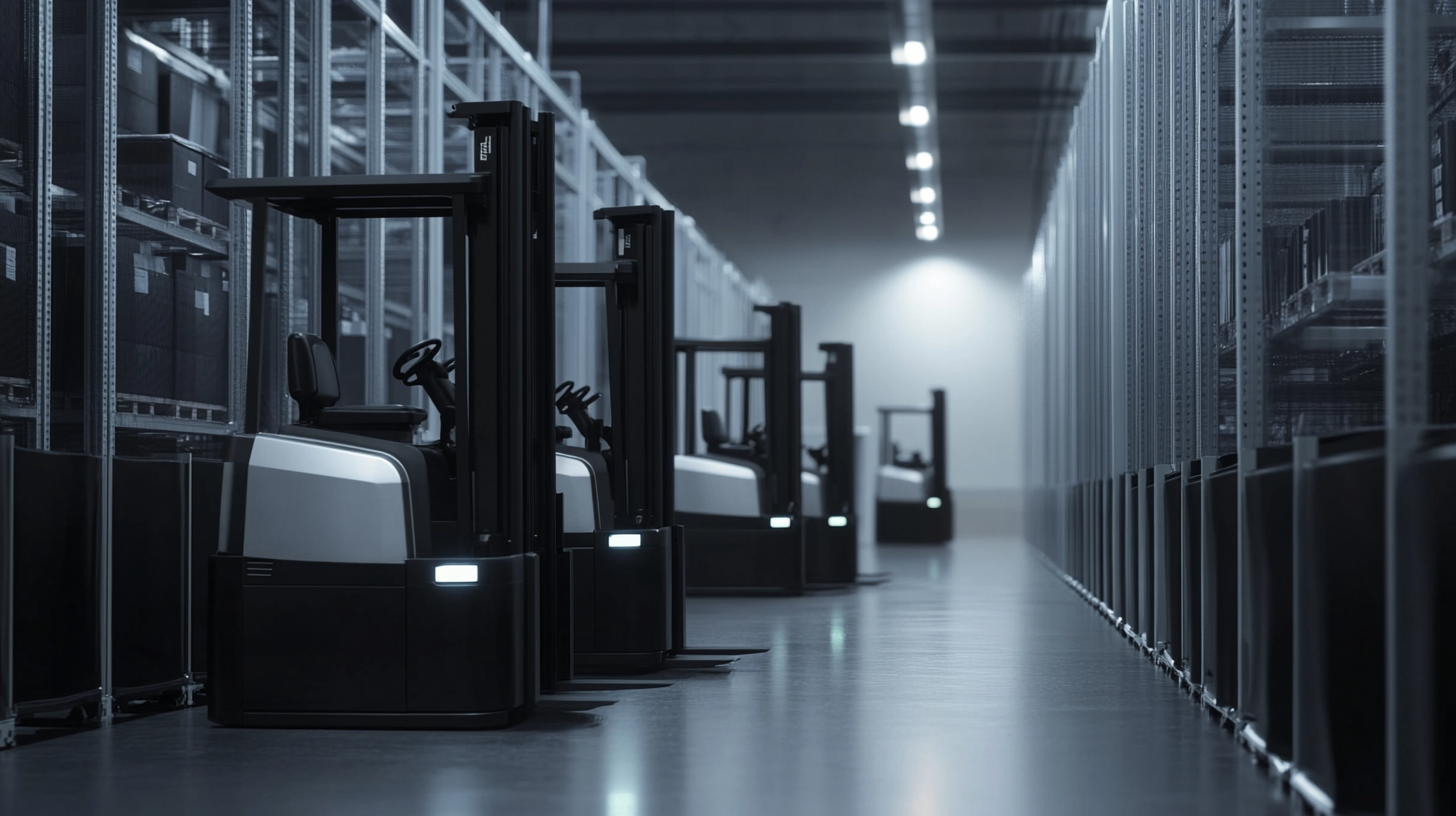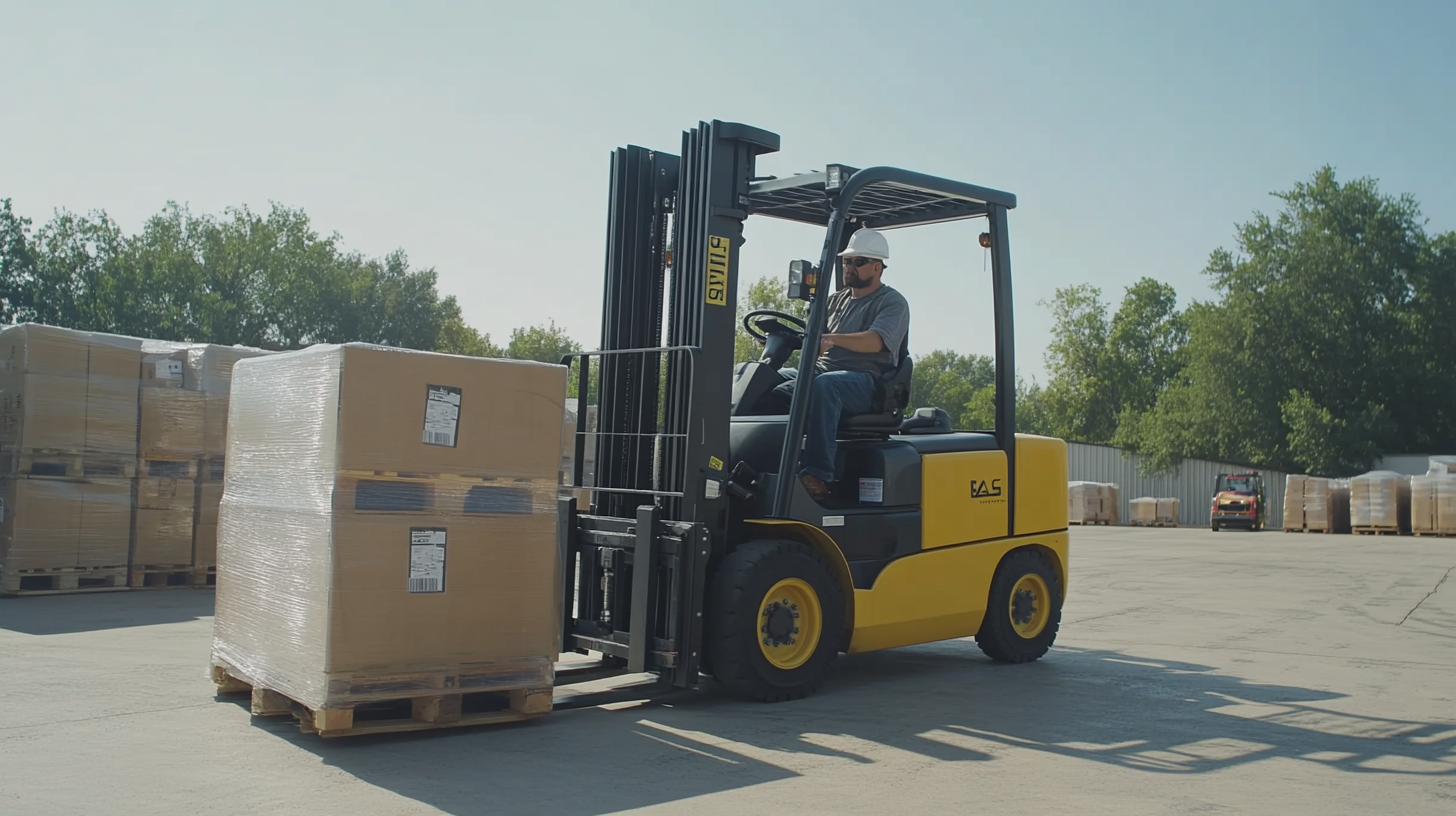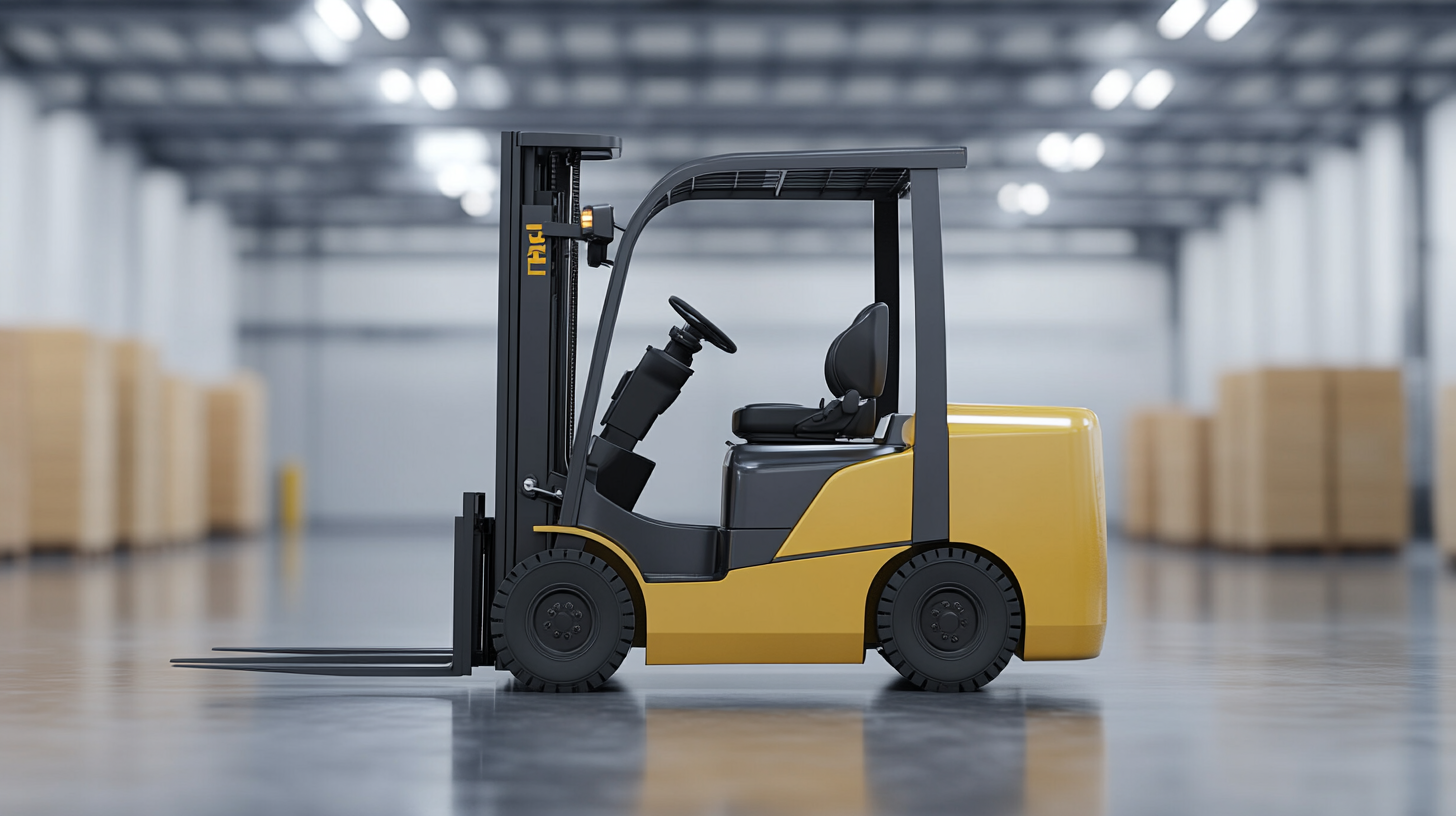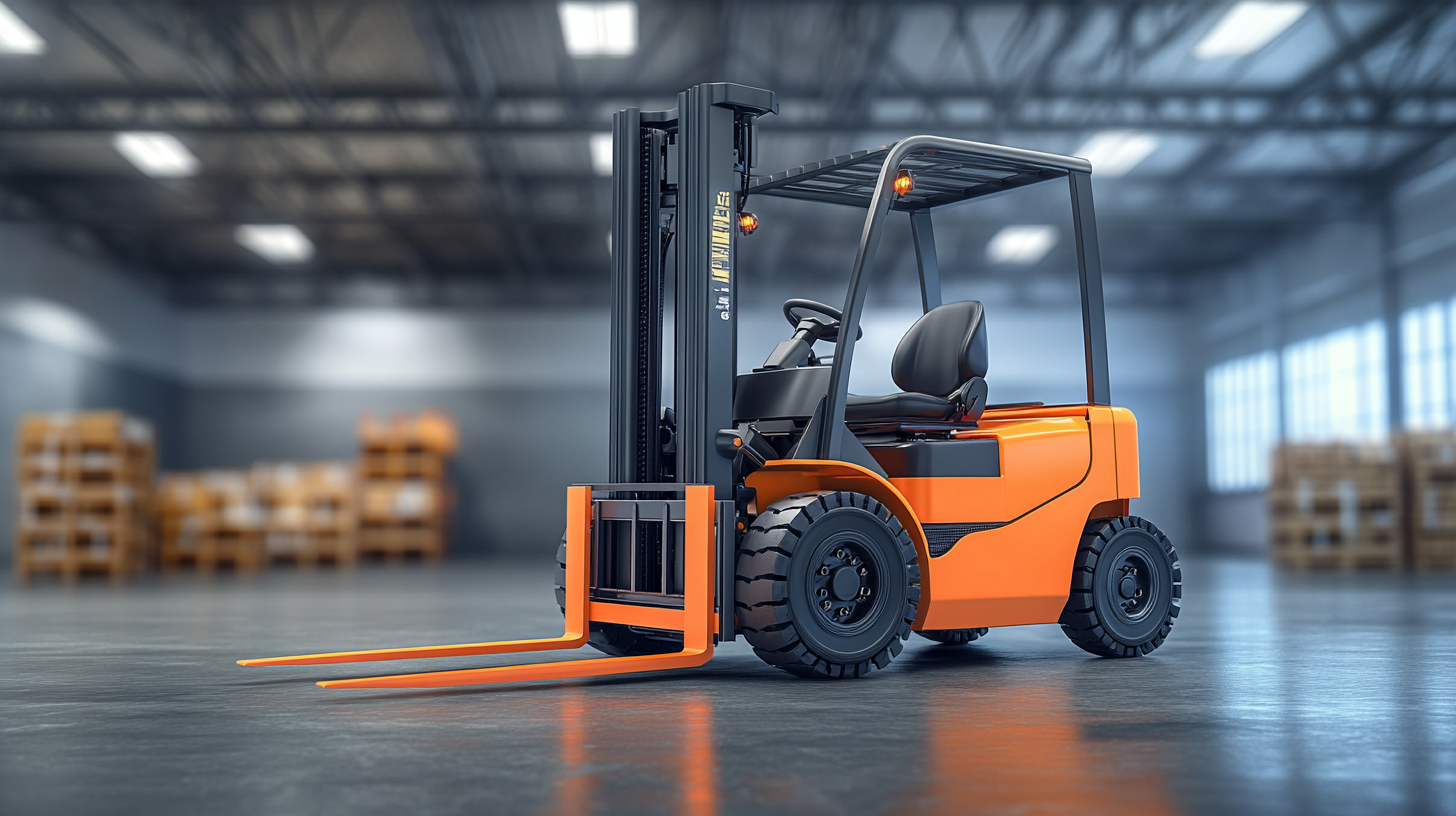Maximizing Warehouse Efficiency: Innovative Applications of Battery Operated Forklifts in Logistics Operations
In the fast-paced world of logistics and warehousing, efficiency is paramount. As businesses strive to optimize their operations, battery operated forklifts have emerged as a transformative solution. These advanced machines not only reduce reliance on fossil fuels but also enhance productivity by providing quicker and more reliable material handling capabilities. With the increasing demand for sustainable practices, battery operated forklifts are not only a smart choice for the environment but also a strategic investment that can streamline operations and reduce costs.
Moreover, the innovative applications of battery operated forklifts in logistics are reshaping how warehouses function. Equipped with cutting-edge technology, these forklifts offer improved maneuverability, better load capacity, and reduced downtime compared to traditional electric or gas-powered options. As we explore the various ways battery operated forklifts can maximize warehouse efficiency, it becomes clear that their integration is crucial for businesses aiming to stay ahead in today's competitive market. The following sections will delve into the specific benefits and practical implementations that highlight their value in logistics operations.

The Advantages of Battery Operated Forklifts in Modern Warehousing
The shift towards battery-operated forklifts in modern warehousing has been driven by a growing need for efficiency and sustainability in logistics operations. According to a report by Grand View Research, the global electric forklift market is expected to reach USD 43.65 billion by 2027, reflecting a CAGR of 6.7%. This surge is primarily due to the numerous advantages that battery-operated forklifts offer over their internal combustion counterparts. One of the key benefits of battery-operated forklifts is their reduced environmental impact. Unlike traditional diesel or LPG forklifts, electric models produce zero emissions at the point of use, making them an ideal choice for indoor operations where air quality is a concern. The U.S. Department of Energy highlights that battery-operated forklifts contribute to a cleaner workplace environment, significantly improving worker health and safety. Furthermore, they are generally quieter in operation, which can enhance productivity by providing a more conducive working atmosphere. In addition to environmental benefits, battery-operated forklifts are known for their lower operating and maintenance costs. According to an analysis by IBISWorld, companies can save up to 20% on operational costs by switching to electric forklifts due to fewer moving parts and less frequent servicing needs. With advancements in battery technology, such as lithium-ion batteries, charging times have decreased, allowing for improved utilization rates and reducing downtime in warehousing operations. This shift not only optimizes performance but also aligns with the modern logistical demand for faster and more efficient distribution processes.

Innovative Technologies Enhancing Battery Efficiency and Performance
As the logistics industry continues to strive for enhanced efficiency, the evolution of battery technology plays a pivotal role in revolutionizing operations. Innovative advances in battery efficiency and performance are driving this transformation, particularly within the realm of warehouse operations. Recent developments in lithium-ion batteries not only enhance energy density but also extend the lifespan, thanks to groundbreaking materials that eliminate the need for traditional components. This allows for more reliable and long-lasting power sources for battery-operated forklifts, making them increasingly indispensable in logistics.
Moreover, the emergence of graphene technology marks a significant breakthrough in battery safety and performance. Researchers have devised a scalable method for producing large graphene current collectors, which leads to substantial improvements in the safety profile of lithium-ion batteries. This increase in safety and performance metrics could translate into greater operational efficiency, as warehouses adopt these advanced batteries to power their fleets.
Financial investments in the battery sector are also noteworthy. Recent funding initiatives aim to shift the paradigm of electromobility by developing innovative solutions that bolster EV battery performance and lifespan. Notably, the market for digital battery twins is projected to grow from $112 billion to $424 billion by 2030, highlighting the urgent need for efficient production methods. These digital tools can improve efficiency by 25% and significantly reduce costs, driving down expenses in logistics operations where battery-operated forklifts are increasingly prevalent. The intersection of these advancements indicates a promising future for warehouse efficiency.

Implementing Smart Battery Management Systems for Optimal Operations
In today’s fast-paced logistics environment, efficiency is paramount, and innovative technology plays a pivotal role in achieving operational excellence. Battery-operated forklifts have emerged as the backbone of modern warehouses, allowing for increased mobility and reduced emissions. However, to fully capitalize on their potential, implementing advanced Smart Battery Management Systems (SBMS) is essential. These systems not only enhance the lifespan of the batteries but also optimize their performance in real-time.
A Smart Battery Management System offers a plethora of benefits, including improved monitoring of battery health and performance metrics. By utilizing IoT technology, these systems can collect data regarding charging cycles, temperature fluctuations, and energy consumption patterns. This data is crucial for predictive maintenance, helping warehouse managers address issues before they escalate into costly downtimes. Furthermore, real-time insights enable better planning of charging schedules, ensuring that forklifts are always ready when needed without excessive energy use.
Additionally, SBMS contributes to a more sustainable operational model. By optimizing charging times and reducing energy waste, warehouses can significantly lower their carbon footprint. The integration of intelligent energy distribution systems within SBMS can further enhance operational efficiency, allowing for coordinated power usage among multiple forklifts and equipment. The result is not just operational sustainability but also significant cost savings, making the investment in Smart Battery Management Systems a strategic move for any logistics operation aiming to maximize efficiency.

Reducing Environmental Impact Through Sustainable Forklift Solutions
The logistics industry is increasingly leaning towards sustainable practices, particularly in the realm of material handling. The shift to battery-operated forklifts is a pivotal innovation that contributes to reducing the environmental impact of logistics operations. This transition not only provides a reduction in carbon emissions but also aligns with government initiatives aimed at promoting green supply chain practices. Sustainable material handling equipment can yield substantial cost savings while streamlining operations, showcasing the dual benefits of efficiency and eco-friendliness.
According to recent projections, the industrial waste management market is expected to soar from $1,065.4 billion in 2023 to approximately $2,703.3 billion by 2033, indicating a compound annual growth rate (CAGR) of 10.9%. This growth underscores the critical importance of environmentally friendly practices within logistics. By integrating advanced technologies such as energy-efficient forklifts, companies can drastically cut down their operational waste and reduce their overall carbon footprint.
Furthermore, there is a call for action in the industry as demonstrated by recognition programs that highlight companies committed to sustainability. For instance, the acknowledgment of 75 Green Supply Chain Partners illustrates a growing trend among logistics providers to adopt practices that not only meet operational demands but also preserve the environment. These initiatives are pivotal as they contribute to a sustainable future in logistics, ensuring companies are not just efficient but also responsible stewards of the planet.
Case Studies: Success Stories Utilizing Battery Forklifts in Logistics
In recent years, the logistics sector has witnessed a significant transformation with the integration of battery-operated forklifts, which have emerged as a game-changer in warehouse efficiency. Companies across various industries are embracing these innovative machines, leading to enhanced productivity and reduced operational costs. Case studies highlight how these electric forklifts not only minimize downtime but also contribute to a more sustainable operation by reducing carbon footprints.
For instance, a leading logistics provider in Europe implemented battery-operated forklifts in their warehouse and reported a 30% increase in throughput. By utilizing these forklifts, they were able to operate longer hours without the need for frequent recharging, thanks to advancements in battery life and efficiency. Additionally, the reduction in noise pollution from electric forklifts created a more pleasant working environment for employees. Such outcomes demonstrate the tangible benefits of switching to battery-operated equipment.
Moreover, the push for a circular economy is becoming increasingly relevant, especially concerning electric vehicle batteries. As logistics companies incorporate more battery-operated forklifts into their operations, they also have the opportunity to engage in sustainable practices for battery recycling and repurposing. This not only reduces waste but also creates a closed-loop system that maximizes resource utilization. Through innovative battery management and reconditioning strategies, organizations can ensure their operations remain efficient and environmentally responsible.



